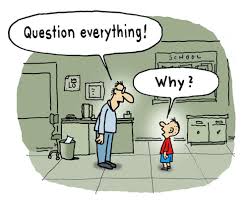
In the French philosopher Jean-Paul Sartre’s essay, Existentialism Is a Humanism (EH), Sartre continues his theme from Being and Nothingness, that humans are condemned to be free as this makes them wholly responsible for their existence. In the essay, Sartre talks about the notion of choice. The theorist John Rawls speaks about a ‘veil of ignorance’ in a book published long after Sartre wrote EH but it helps to illustrate Sartre’s point. In the theory, Rawls speaks of a hypothetical veil of ignorance that one must employ when thinking about how to fix society’s problems- essentially, Rawls is saying, imagine, before you are born, how would the perfect society be? This, in theory, removes one from the subjective notion of ‘I think, therefore I am right’, to look for an objective reality. This, of course, is incredibly hard to achieve. Sartre, in turn, focuses on the subjective. Sartre’s notion is that no one is born as they become. There are no naturally born heroes or cowards, rather to be a hero or a coward is a choice. This becomes a source of personal anxiety, for if we are responsible to be a hero or a coward, then we do not have the alibi of ‘I was born like this, I had no choice’, to quote Leonard Cohen.
Whilst reading Sartre’s essay, based upon a lecture he gave, I suddenly started thinking of the character of Achilles from the Ancient Greek epic poem The Iliad, written by (maybe, or maybe not, who cares, it makes no difference), the 5th Century BC poet, Homer. Existentialism is one of those phrases which Sartre notes is meaningless simply because too many people have given it meaning. Someone plays a piece of music different to the norm and suddenly she is an existentialist musician. People constantly talk about experiencing ‘existential crisis’ the same way Hamlet’s ‘to be or not to be,’ the embodiment of the existential crisis, gets thrown around willy-nilly devoid of all meaning. Indeed, if one looks at the existential philosophers, one will see that their work and thought varies greatly and, it seems, existentialism is as meaningless as the medical diagnosis of irritable bowel syndrome (IBS), used to say that it is something to do with the stomach, but no one knows what.
Although existentialism is associated mostly with the 20th Century French thinkers, their thought begins, as Sartre admits in the essay, with the notion in the 19th Century Russian author Dostoyevsky’s The Brothers Karamazov that if there is no God, no higher law, then everything would be permitted, i.e. we are condemned to be free. At the same time of Dostoyevsky, the Danish philosopher Kierkegaard wrote that ‘anxiety is the dizziness of freedom’, i.e. we are condemned to be free. Kafka, in the 20th Century, a historical contemporary of Sartre whom Sartre read, said that he was lost because he was free, i.e. he was condemned to be free. And so, from this, we can see that existentialism does not come from the 20th Century France, rather, it is global with a deeper reach through history.
But what has all of this got to do with a fictional character in the 5th Century, BC, almost 2,500 years before Sartre? In The Iliad, Achilles is given a choice by this mother, a Nereid, a goddess of the sea, who has the gift of foresight. She tells him that either he can go to war, die, and his name will ‘echo through eternity’ or he can stay at home, get fat and old and die in the arms of his loving family. If we consider Sartre’s notion that a hero and a coward are not born, it is a choice, then we can see, given the contextual notion of what it meant to be ‘a man’ in Ancient Greece (and now), that Achilles is given the choice: he can be a hero or he can be a coward. You, dear reader, as with his mother, knows there is no cowardice in not fighting pointless wars, The Iliad being about how a woman running away with the man whom she loves to escape an arranged marriage to his country was used as a flimsy premise for empire building, yet, for Achilles the choice is- be a hero and become famous or die in anonymity considered by many a coward. This choice, we see, is not as simple as it seems for, despite external expectations, Achilles is condemned to be free, to make the choice. He chooses glory yet later in the book he decides not to fight. A maiden who worked in a temple in Troy was kidnapped. Achilles claimed her for his own, the high king, Agamemnon wanted her too and took her and so Achilles, pouting, refuses to fight. It is only for the desire of vengeance for the death of his friend (maybe lover) Patroclus, who puts on Achilles’ armour to inspire the Greeks and is slain, that Achilles returns to the war.
And so, we see, that Achilles was condemned to be free, wholly responsible for his choices, and that he was, in many ways, one of the first existentialist characters in the history of fiction, 2,500 years before the term was coined.
‘till next time
(note: we did not have time to go into the interesting dichotomy of free will and fate in Greek Mythology, maybe we’ll return to it at some point)

